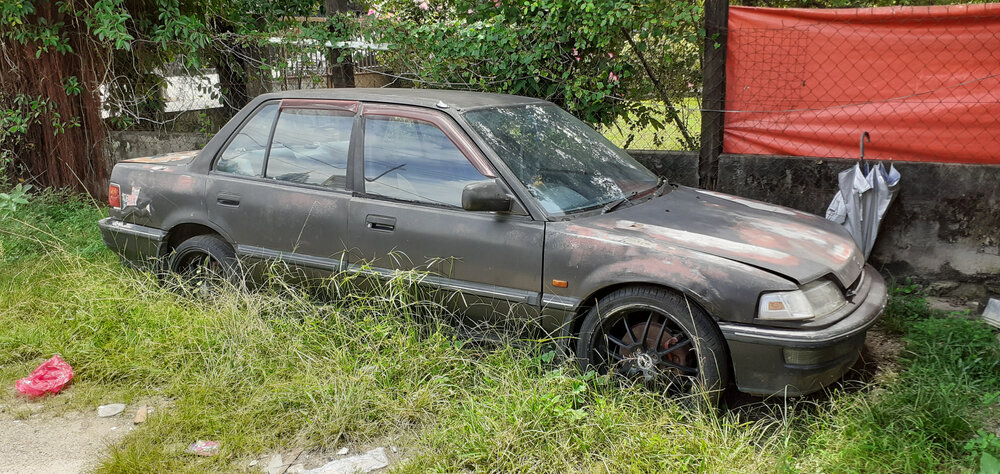Junkyard Near Me: Discover the very best Local Junkyards for Your Car
Junkyard Near Me: Discover the very best Local Junkyards for Your Car
Blog Article
The Ecological and economic Benefits of Recycling Junk Automobiles
Recycling junk cars presents many economic and ecological advantages that prolong well beyond waste decrease. By redeeming up to 90% of vehicle parts, this technique dramatically decreases land fill burden while preserving vital natural deposits. It reduces down on energy use and greenhouse gas emissions linked to raw product removal and manufacturing. The process additionally creates work opportunities throughout numerous markets, from taking down to logistics, and supplies customers with cost-effective vehicle components. These benefits underscore the multifaceted worth of reusing scrap cars, yet there are further facets to consider when evaluating its complete impact.
Decreasing Land Fill Waste
Lowering garbage dump waste with the recycling of junk autos plays an essential function in ecological preservation. When vehicles get to the end of their life process, efficient recycling procedures can dramatically reduce the volume of waste that winds up in land fills. Junk cars, otherwise properly reused, add to the expanding issue of land fill overcapacity, intensifying environmental destruction and potentially infecting soil and groundwater with hazardous compounds such as oil, gas, and heavy steels.

In addition, the reusing procedure mitigates the unfavorable impacts of vehicle waste on biodiversity. Garbage dumps are well-known for disrupting local ecosystems, and minimizing the influx of scrap vehicles helps protect natural environments. Inevitably, recycling junk cars is a strategic strategy that cultivates lasting waste management, aligning with broader ecological objectives.
Conserving Natural Resources
In addition to mitigating garbage dump overcapacity, recycling scrap cars plays a significant duty in saving all-natural resources. The automotive industry is greatly reliant on numerous metals, plastics, and various other products that call for considerable mining and processing. By recycling junk cars and trucks, we significantly reduce the need for basic materials, thereby curbing the environmental degradation connected with mining activities. For instance, reusing steel from old cars decreases the necessity for iron ore removal, which in turn reduces power consumption and greenhouse gas discharges.
Additionally, the procedure of reusing auto elements such as lead, aluminum, and copper is much much less energy-intensive than producing these materials from virgin resources. This power financial savings converts directly right into reduced fossil fuel consumption and lower carbon impacts (junk car buyers). Furthermore, by reclaiming and repurposing materials, we extend the lifecycle of non-renewable resources, guaranteeing they stay offered for future use
Additionally, reusing auto liquids like oil, antifreeze, and transmission fluid avoids harmful materials from contaminating dirt and water sources. Via organized recycling initiatives, these liquids can be purified and reused, advertising a round economic climate and further diminishing the strain on natural sources. Therefore, reusing junk autos provides a multifaceted approach to saving our planet's invaluable all-natural assets.
Creating Work Opportunities
The recycling of junk cars and trucks not just profits the setting but likewise boosts financial growth by creating work chances. This burgeoning industry offers a large range of employment potential customers, ranging from the initial collection and transport of old automobiles to the elaborate processes of dismantling, sorting, and repurposing sale your junk car the various components.

The spreading of recycling plants better enhances the work market, requiring duties such as designers, maker operators, and quality assurance professionals to make certain and take care of the innovative machinery compliance with ecological guidelines. Also administrative positions, such as more info here sales, marketing, and customer care, see a surge as the industry increases.
Reducing Production Prices
By integrating recycled products from scrap cars, suppliers can considerably decrease manufacturing expenses. The power required to refine recycled materials is significantly less than that needed to create new products from scratch.
Furthermore, the recycling process helps enhance the supply chain by offering a steady influx of materials that are easily offered and often less expensive than newly mined sources. These price performances are specifically vital in a very competitive industry like auto manufacturing, where margins can be razor-thin. Furthermore, the recycling of scrap cars helps mitigate the unstable pricing of resources, allowing suppliers to better forecast and manage their manufacturing spending plans.
Giving Inexpensive Auto Components
When junk automobiles are reused, the schedule of economical auto parts dramatically increases, profiting both consumers and service center. Recycled auto parts are commonly offered at a fraction of the cost of repairs, giving a cost-efficient choice for automobile proprietors and technicians. This affordability can be critical for people who might not have the economic methods to buy new parts, enabling them to preserve their cars in risk-free and operational problem.
Service centers also gain from this increased accessibility of economical parts. By sourcing recycled elements, these organizations can lower their functional expenses, which can be handed down to consumers with lower service fee. This, consequently, can lead to greater customer fulfillment and commitment, as customers value the price financial savings without endangering on top quality.
Moreover, the quality of recycled components has actually enhanced significantly for many years, thanks to developments in reusing processes and quality assurance measures. Lots of recycled parts undertake extensive screening to ensure they satisfy sector standards, offering integrity similar to buy junk cars no title repairs - junk car buyers. By giving a economically practical and top quality option, the recycling of junk automobiles plays a critical function in supporting both the automotive repair sector and the broader consumer market
Conclusion
Reusing junk automobiles presents significant financial and ecological advantages by dramatically decreasing landfill waste and saving all-natural sources. This technique lowers producing costs by reclaiming approximately 90% of car components, thus decreasing power consumption and greenhouse gas emissions. Additionally, it creates job opportunity across numerous fields and products budget friendly car parts, bolstering the auto repair industry. In general, the recycling of scrap cars and trucks sustains both financial growth and sustainability purposes.
Reusing junk vehicles presents numerous financial and ecological benefits that prolong well beyond waste decrease. Scrap autos, if not effectively recycled, add to the expanding issue of garbage dump overcapacity, aggravating ecological degradation and possibly contaminating dirt and groundwater with dangerous substances such as oil, gas, and hefty steels.
By reusing scrap autos, we dramatically minimize the need for raw materials, consequently curbing the environmental degradation linked with mining tasks.When junk vehicles are recycled, the availability of budget friendly car components considerably increases, benefiting both customers and repair work stores.Recycling junk cars provides significant economic and ecological benefits by dramatically minimizing garbage dump waste and saving natural resources.
Report this page